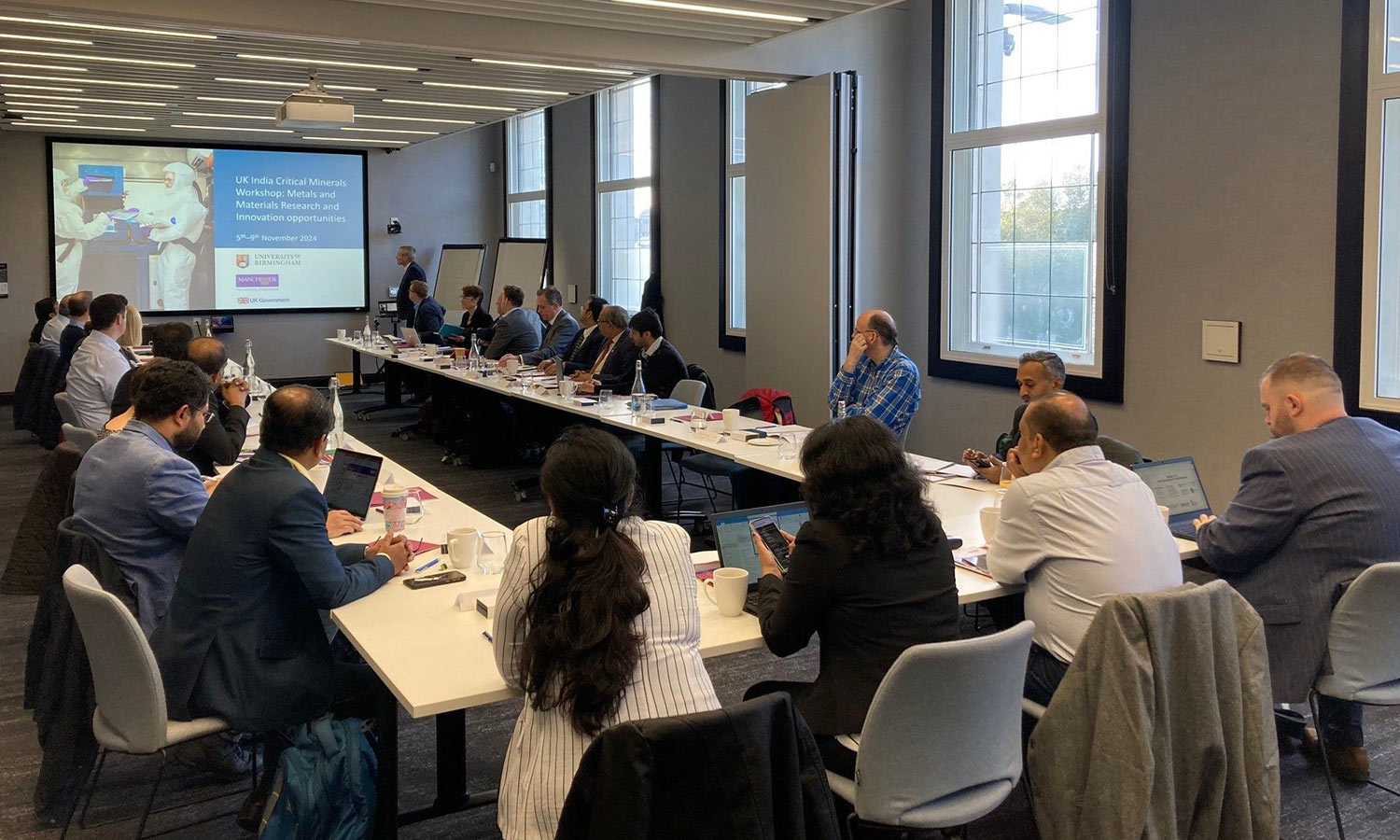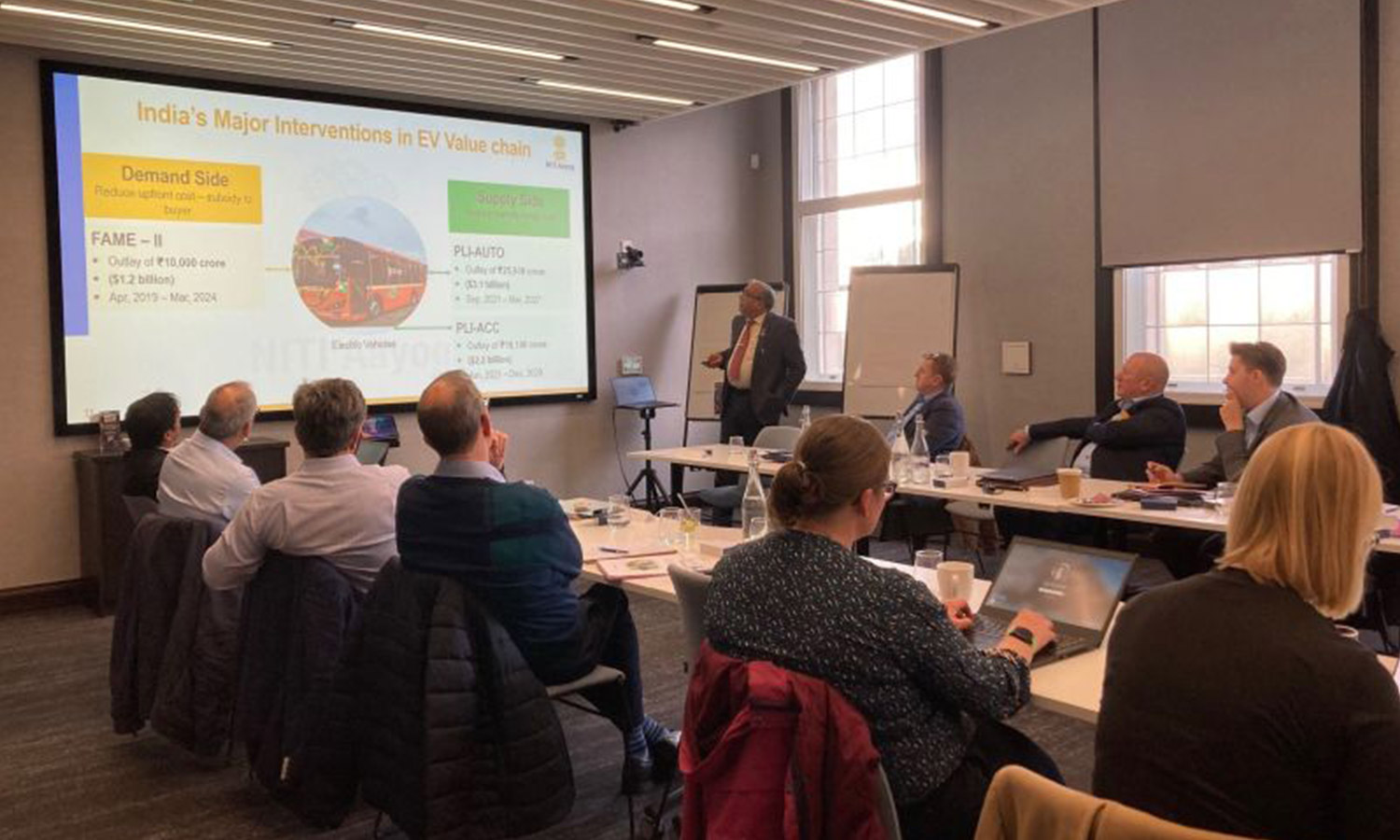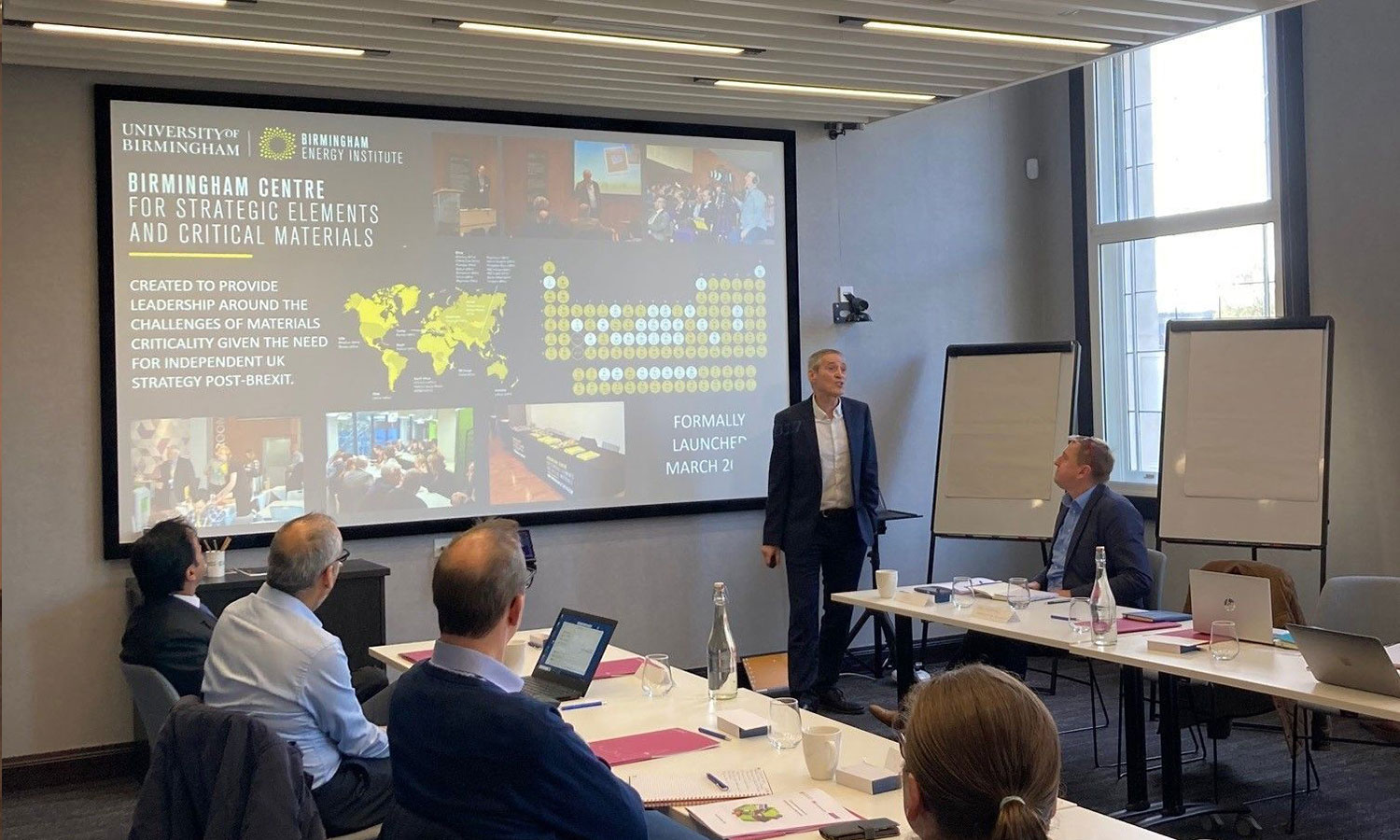Opportunities for India and the UK to work together on critical minerals and EV batteries were discussed in a ReLiB Project workshop organised with an Indian delegation.
Bringing together leading academic experts, the overarching aim of the ReLiB project is to establish a technology pipeline and provide a clear roadmap for the efficient end-of-life management of electric vehicle (EV) lithium-ion batteries in the UK, encompassing both current and future battery chemistries.
The ReLiB Project hosted the Critical Minerals Workshop at the University of Birmingham in November with an Indian delegation organised by the British High Commission in India.
The session presented numerous opportunities for India and the UK to collaborate and work together towards achieving common goals.
By joining forces, the event explored how both countries can benefit from sharing knowledge, expertise and resources in the critical minerals and EV battery sector.
The Critical Minerals Workshop provided a platform for industry leaders, policymakers, and experts from both nations to come together and discuss various aspects of critical minerals.
By strengthening collaboration in this area, India and the UK can ensure a stable and sustainable supply of critical minerals for their respective industries.
During the workshop, participants had the opportunity to showcase their technological advancements and innovations related to energy storage.
It is hoped this exchange of ideas can lead to the development of new technologies and processes that enhance the efficiency and sustainability of critical mineral extraction, processing, and EV battery recycling.
Additionally, the workshop facilitated the establishment of partnerships and business opportunities between Indian and UK companies.
By leveraging each other’s strengths and expertise, these companies can explore joint ventures, investments, and research collaborations in the EV battery recycling sector. This not only promotes economic growth but also fosters stronger diplomatic ties between the two nations.
The workshop also led to the discussion of policy frameworks and regulations related to critical minerals. By aligning their policies, India and the UK can create a conducive environment for investment, research, and development in this important sector. This can lead to improved resource governance, sustainable practices, and environmental stewardship.
A ReLiB spokesperson said: “The Critical Minerals Workshop being hosted by the UK presents a significant opportunity for India and the UK to collaborate and work together towards achieving mutual benefits in the critical minerals and EV battery recycling sectors.
“Through knowledge sharing, technological advancements, partnerships, and policy alignment, both countries can ensure a stable and sustainable supply of critical minerals, while also fostering economic growth and diplomatic relations.”



